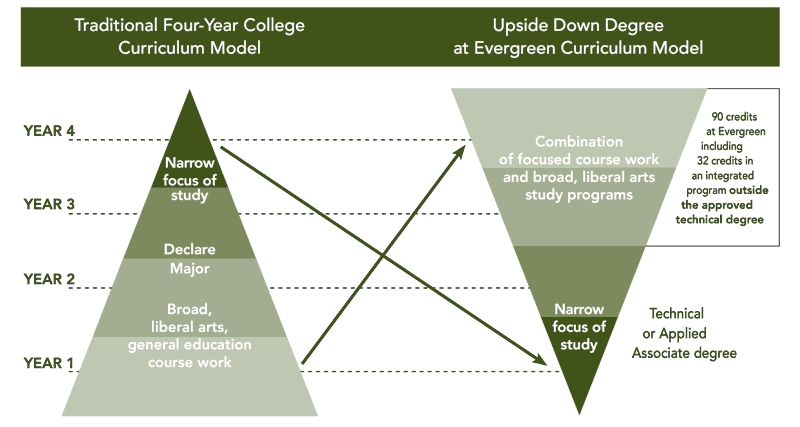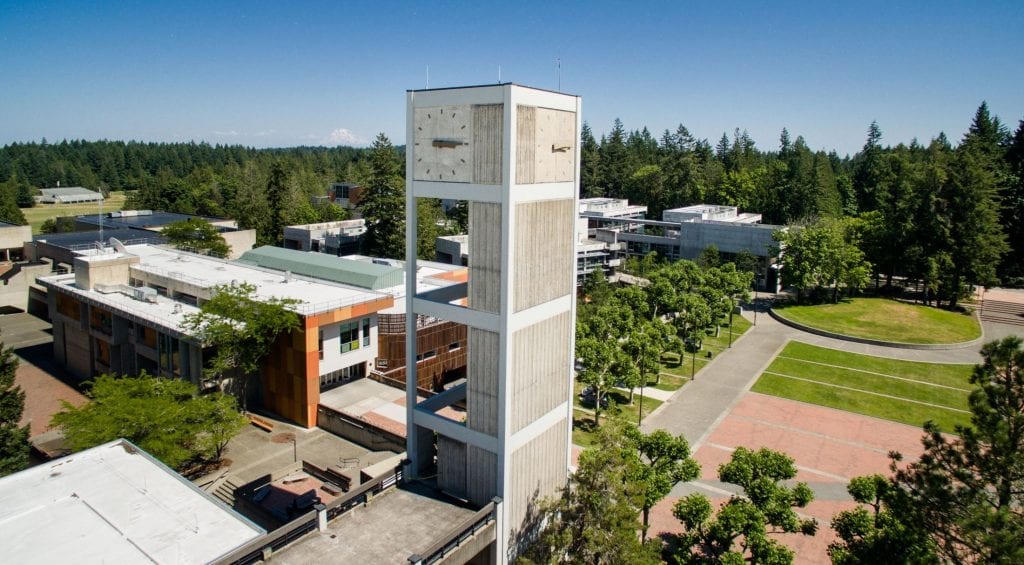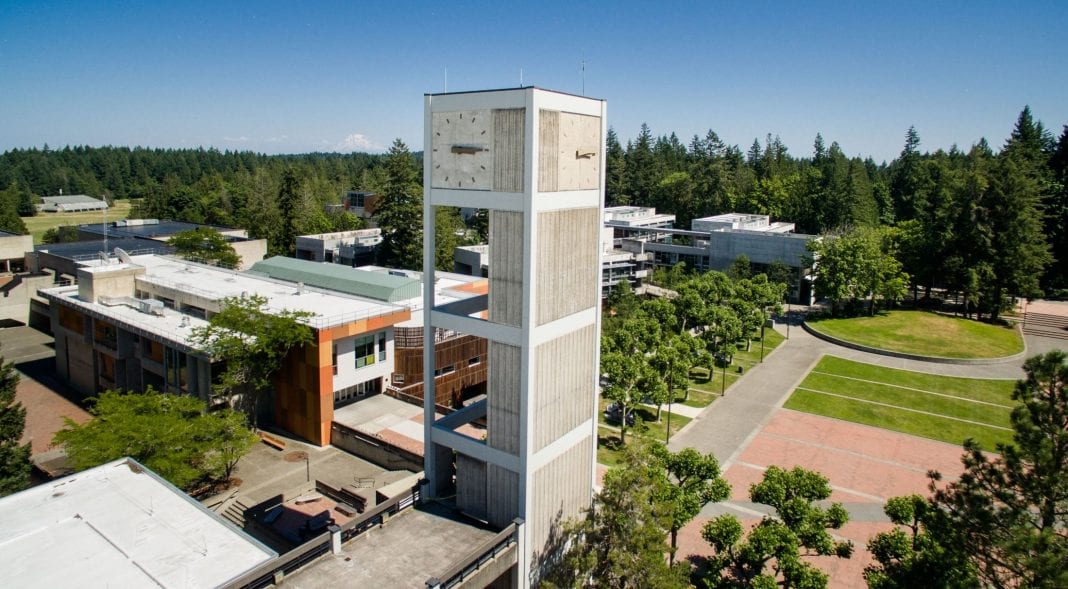As Thurston County responds to and plans for the impacts of the COVID-19 pandemic, institutions of higher education like The Evergreen State College will remain a viable option for individuals at all phases of life who want to learn, grow and make positive changes in the world.

Although face-to-face services have been discontinued, for the time being, Chief Enrollment Officer Eric Pedersen wants the community to know that all student service offices are still available to help current and prospective students via phone and email. “We are open and here to serve current students or anyone who is thinking about going to college next fall or next spring,” Pedersen emphasizes.
If your job has been impacted by the pandemic, you may be considering a fresh path. Perhaps you have a few college credits from earlier in life and you want to finish your degree. Evergreen is an affordable, close-to-home option with flexible class schedules and a compassionate “credit for prior learning” policy. The enrollment office is happy to evaluate college transcripts from decades ago, including military transcripts for both active-duty members of the military and veterans. Anyone with a serious interest in continuing their education at Evergreen can submit existing transcripts online for a free transfer credit evaluation.
Evergreen does not function under the traditional four-year college structure. There is no list of general education requirements that have to be ticked. Where life experiences outside the classroom might count as elective credits when a returning student starts at another college, Evergreen evaluates them and converts them appropriately to degree credits. When a returning student starts with more degree credits, the amount of time needed to complete their degree is reduced. This translates to fewer dollars spent on tuition. In addition to saving money on tuition, the individual can get back into the full-time workforce sooner and earn more money in the long run.

The Upside Down Degree Option is Evergreen’s formal program for individuals who have a two-year vocational or technical degree from a community or technical college in Washington and decide they want or need a four-year bachelor’s degree. In the traditional model, college students take classes in general studies first and hone their focus in their second two years. Evergreen created the Upside Down degree a number of years ago in order to meet learners right where they’re at.
“To some degree, the door is wide open,” Pedersen says. He gives the example of an individual who had formal HVAC training from a local community college. This individual wanted to develop his entrepreneurship skills and learn about business and marketing so he could start his own business feeling prepared. He was able to convert his technical training into two years’ worth of degree credits and earn his bachelor’s degree in just two years before launching a successful business.
Similarly, a student wrapping up a technical degree as a paralegal might decide she wants to go to law school. Law school admission requires a bachelor’s degree. This student can take advantage of Evergreen’s Upside Down Degree Option and take two years of low-cost undergraduate coursework to earn her degree and prepare her for law school.
Evergreen’s tuition costs around $7,300 per year for residents of Washington, including fees. Students can live and dine on campus for about $12,000 per year, depending on the room and meal plan selection. There are a number of grants, scholarships and loans students of all income levels can take advantage of.
Students from low- and middle-income families can take advantage of the new Washington College Grant which covers all or some of the tuition. Eligible students from a family of four making $50K or less get a full-tuition award. Partial grants are available for families making up to $97K per year.

Unique to Evergreen is the Evergreen Need Grant, which is reserved for residents of Washington as well. Non-resident, full-time students are eligible for the Federal Supplemental Education Opportunity Grant, a need-based grant program. Resident and non-resident students are eligible for a Federal Pell Grant. How do you earn one of these grants? By completing the Free Application for Federal Student Aid (FAFSA). The offices Eric Pedersen oversees assist both new and returning students with navigating their annual FAFSA submission.
Evergreen also has a vast database of scholarships students can apply for individually. Although the submission deadline for the 2020-2021 school year scholarships has now passed, it will open for the 2021-2022 school year later this year. All prospective and current students are encouraged to browse these offerings.
If you have questions about financial aid, contact the Financial Aid office at finaid@evergreen.edu or 360-867-6205. Questions about admissions can be answered at admissions@evergreen.edu or 360-867-6170. As always, Evergreen practices rolling admission, meaning you can apply any time of year.
As our community forges ahead into uncertain times, Evergreen has a plan in place to continue supporting students and assist them with learning remotely. “We have room,” Pedersen says. Now may be the perfect time to start your journey into higher education or pick up where you left off.
Sponsored








































